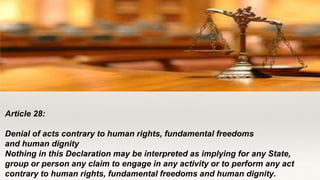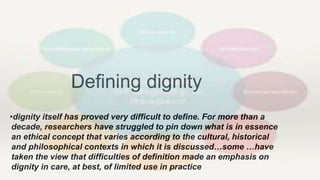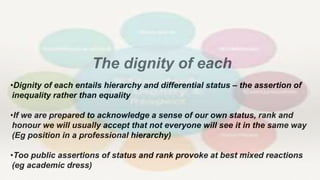The document discusses the concept of dignity, which distinguishes humans from animals and emphasizes the importance of treating all individuals with respect. It outlines the legal, ethical, and philosophical frameworks surrounding dignity, including references to the Universal Declaration of Human Rights. Additionally, it explores the complexities of dignity in various contexts, particularly in health and social care, and highlights the necessity of recognizing both individual and collective dignity.
































